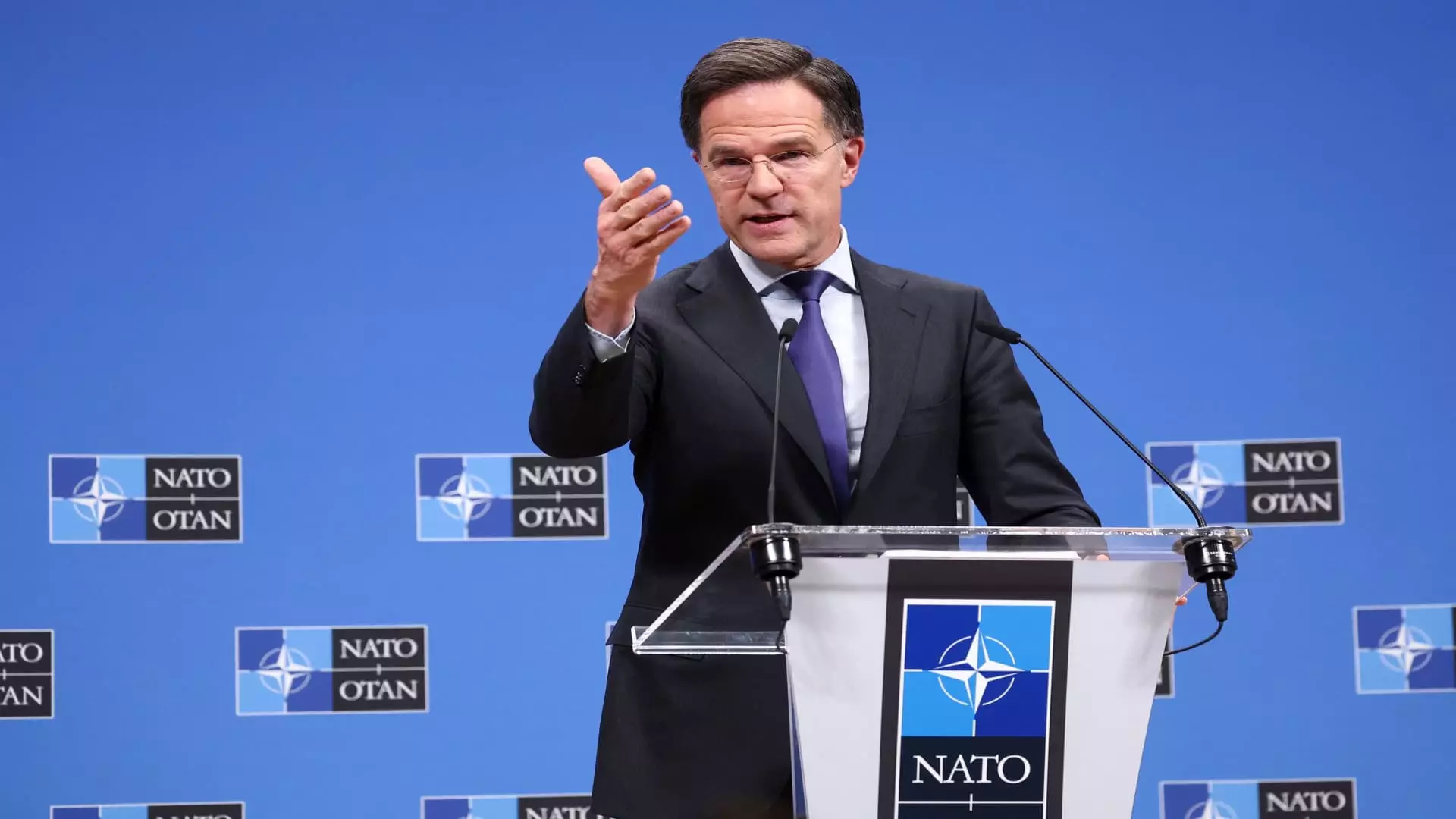In the realm of international security, NATO’s role has become increasingly indispensable, especially as geopolitical tensions rise. Recently, during the Munich Security Conference, NATO Secretary General Mark Rutte emphasized the urgent need for European member states to cease their grievances and actively engage in constructive dialogue. His comments signal a pivotal moment in the alliance, reflecting the evolving dynamics fueled by a more assertive United States and rising global instability.
Mark Rutte’s directive for European NATO members to present tangible solutions rather than voicing complaints underscores the alliance’s growing frustration with its members’ sporadic contributions to defense. His insistence on practicality represents an important shift toward greater accountability and collaboration within NATO. Rather than passively receiving U.S. support, European states must now step up by bringing concrete proposals to the table. The underlying message is clear: the stability of NATO relies on the collective responsibility of all its members.
The anticipated summit in The Hague this June, where new defense spending targets are expected to be announced, could redefine member states’ financial commitments. Rutte hinted at a figure surpassing the current target of 2% of GDP, suggesting it could be “considerably more than 3%.” If implemented, this escalation in budgetary constraints and military readiness would be a departure from previous norms and may signal a pivotal evolution in Europe’s defense posture.
Rutte’s statements resonated with U.S. Senator Lindsey Graham, who articulated the notion that external threats, particularly from Russia, have inadvertently united NATO members in pursuit of heightened military budgets. Graham asserted that Russia’s aggressive maneuvers in Ukraine have counterintuitively bolstered NATO’s cohesion by emphasizing the necessity for increased defense expenditure. This perspective reveals a unique counterbalance; as NATO members face heightened risks, they are compelled to reassess military funding and operational readiness.
Historically, the issue of defense spending has created friction between Europe and the United States, particularly during Donald Trump’s presidency. The former president’s confrontational approach highlighted the dependency of European nations on U.S. military support, prompting questions about NATO’s shared responsibility. Before his departure from office, Trump advocated for a drastically higher spending target of 5% of GDP, further complicating the alliance’s budget negotiations.
A notable shift is emerging within NATO’s financial framework. Since Trump’s tenure, there has been a remarkable surge in defense spending among member states. In 2018, only six countries reached the 2% GDP target, while projections for 2024 indicate that approximately 23 nations will meet or exceed that benchmark. This transformation reflects a broader understanding among members of the imperative for collective defense, particularly in the face of mounting threats from adversaries like Russia and China. However, it remains significant that no countries have yet hit Trump’s proposed 5% target, indicating the complexities involved in achieving consensus and practical political will among diverse nations.
In considering this trajectory, it is crucial to recognize that budgetary increases are not merely numbers; they symbolize a shift in collective security strategy. Enhancing military capabilities requires not only financial resources but also geopolitical cooperation and strategic planning. NATO members must prioritize areas such as joint exercises, modernization of armed forces, and innovative defense technologies, thereby fostering a cohesive and fortified alliance.
Moving forward, NATO faces an array of challenges that call for unity and robust engagement from its members. The recent calls by Secretary General Rutte emphasize the importance of action over complacency, aiming to galvanize European nations into a more proactive role when it comes to defense spending. As geopolitical tensions persist, the alliance’s adaptability and collective resolve will determine its efficacy in safeguarding shared security interests. The upcoming summit in The Hague will be a critical juncture where NATO can redefine its financial commitments and strategic outlook, solidifying its role as a cornerstone of global security in tumultuous times.


Leave a Reply